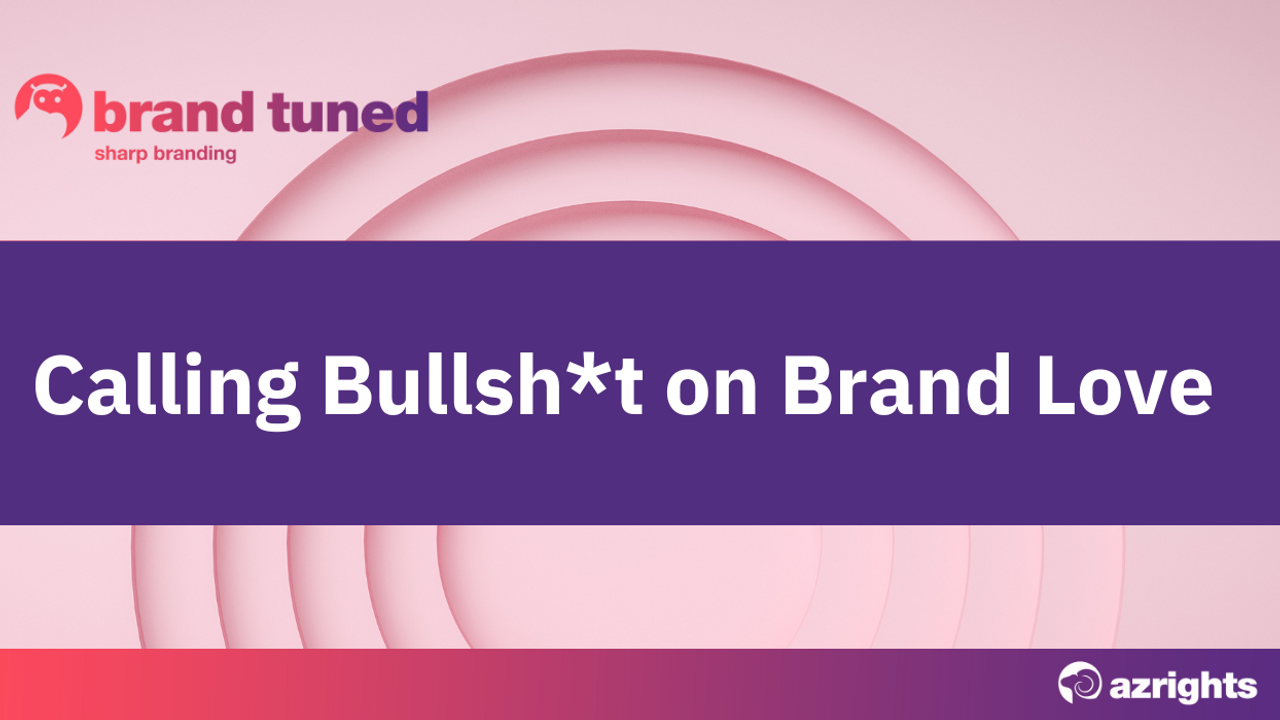Calling Bullsh*t on Brand Love
Sep 15, 2022
Many believe that to build an effective brand you just need to identify an ideal customer, market to them with emotional appeals and thus gain a following of loyalists who will evangelize the brand.
Although this view has widespread currency it doesn’t square with the evidence-based insights into How Brands Grow from Byron Sharp and his team at the Ehrenberg-Bass Institute of Marketing Science.
The idea that the focus should be on loyalty programs, differentiation, hyper targeting and promoting your company's values is even espoused by Seth Godin who tells us that people do not buy goods and services, they buy relations, stories, and magic.
Simon Sinek tells us the relationship that someone has with the brand is the same as the relationship they have with a person. And Howard Schultz, CEO of Starbucks, tells us that if people believe they share values with a company, they will stay loyal to the brand.
The fact is that the core tenet of these views revolving around ‘brand love’ are wrong. Such ideas gain currency because they emanate from high profile individuals who are generalising from particular cases. But their views are not based on truths backed by research.
Think about it. Does the notion of brand love really ring true to your own experience of the hundreds of brands you buy? Do you share the same values with Heinz? Would you ever use the word magic to describe your auto insurance provider?
Brand love is certainly not the normal pathway to brand growth. Even Harley Davidson riders buy Honda motorcycles twice as often as they buy Harleys on average. Harley enthusiasts only make up an estimated 3.5% of Harley's annual revenue. And the majority of Coca Cola’s annual revenue is generated by consumers who bought a single can of coke or less in a year.
These are the inconvenient truths brand love promoters ignore. The reality is that most consumers have better things to do than to fall in love with brands. We lead busy lives. We don't care about your company's values, and we certainly don't buy magic whatever that means.
To buy a brand, consumers need to know you exist. Instead of focusing all your energies on differentiation and trying to be loved by consumers, focus on raising awareness of your brand within the category. Be distinctive so consumers recognise you and don’t confuse you with your competitors.
Distinctiveness is not synonymous with differentiation. Its focus is identity. It’s about intellectual property, something that is ignored in branding courses. People who assume IP is just about getting a lawyer to do legal searches don’t understand its application in branding. The upcoming Identity and Distinctiveness course aims to fill the gap in knowledge.
This summer I’ve been writing and recording the recently launched Brand Tuned Accreditation program. That program fills the gap in knowledge about IP and is a 101 of branding to boot. The next cohort will start in mid-January.
I’d paused the podcast while I was creating the program, and envisaged resuming it before today. However, her Majesty the Queen’s death on 8th September led to my cancelling the newsletter we’d scheduled for Friday 9th in view of the grief that enveloped the nation. So, everything was pushed back to this week.
In today’s episode of the podcast Austin Frank and I discuss why these notions of brand love are outdated. In keeping with the new format of the podcast, Austin Frank starts by delivering a 10-minute masterclass before the interview. Hopefully, you will get more value and deeper insights from this approach. Let me know what you think about the format and listen to Calling Bullsh*t on Brand Love.

